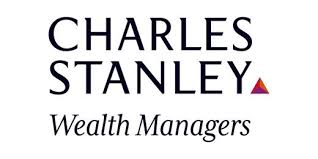Although the content(s) of the article were correct at the time of writing, the accuracy of the information contained within may no longer be current, as it may have been subject to subsequent tax, legislative or event changes. To browse more recent content, please see our Knowledge Centre.
This month:
Bonds fall out of favour
US underweights common due to political uncertainty.
Equity markets benefit from the search for income .
Government bonds lose their shine as a stabiliser.
Alternatives finding favour.
Featuring this month’s experts:
findaWEALTHMANAGER.com is a gateway to the UK’s leading wealth managers and we regularly tap their expertise for the benefit of our users.
Looking ahead to October, our expert investment views include: US political uncertainty, stock market valuations, further Brexit fallout and signs of increasing correlations between asset classes.
Underweight the US amid uncertainties
Insights from:

Rosie Bullard, Portfolio Manager at James Hambro & Partners, says:
All eyes are on the US at the moment, with the election looming. After the surprise of Brexit, we are no longer looking askance at those with the temerity to predict a Trump win. What the consequences of that might be are another matter.
Not surprisingly, we are underweight the US at the moment and not just because of the political uncertainties. We are also wary of currencies, the strength in US dollar of late and interest rates.
The whole US market has been behaving quite strangely. Any bad news seems to be being welcomed because it means a rise in interest rates may be pushed further back. Good news sends markets tumbling, with investors seeing it as the beginning of the end for low rates. In the circumstances, we’re not ready to make any big calls until a clearer picture emerges.
Closer to home, after a 10% index rally from the lows recorded in the wake of the UK referendum on Europe, the run in equities is perhaps extended.
The same applies to world equities, which have rallied sharply following the slump at the beginning of the year. Current valuations don’t tempt us to add to equities and we remain underweight.
We’re watching carefully, but have not yet turned bearish – central banks have invested so much in trying to support financial assets that they are unlikely to change course radically when there are still risks to growth.

Rosie Bullard
Portfolio Manager at James Hambro & Partners
Heading for the fall
Insights from:

Cathy Dixon, partner at Cunningham Coates (a trading name of Smith & Williamson Investment Management LLP) says:
After the turmoil of the summer and the Brexit vote in particular, hope was riding high that we would return to “normal” in September, but so far we still seem to be in limbo. After the traditionally quiet summer, over which period the market crept upwards, it now appears to be in a remarkably complacent mood. From an economic perspective, indications are mildly positive, but it is only three months since the vote and nothing has materially changed yet. Although the Autumn Statement is still more than two months away, the prospect of a significant fiscal stimulus is already being assumed – one of the reasons why the market is so buoyant. The need for a slightly different tack is acknowledged to be necessary after the last cut in interest rates – widely expected in July, but delivered in August – which took base rates to the new low of 0.25%. The US is in full presidential election mode and there seems little room for anything else.
The standout feature in markets currently is central bank involvement: the increased level of quantitative easing in the UK looks set to support fixed interest markets (both government and corporate bonds are being purchased), driving yields down. Equity markets are benefitting from the search for income and global markets have risen strongly since the post-Brexit shock. It is hard to see this continuing indefinitely and longer-term earnings growth will be needed, but in the short term it looks like more of the same.

Cathy Dixon
Partner at Cunningham Coates (a trading name of Smith & Williamson Investment Management LLP)
Looking for value
Insights from:

Alex Scott, Deputy Chief Investment Officer at Seven Investment Management, says:
The strong market rally since the end of June has taken many investors to an uncomfortable place: many missed it altogether. The average hedge fund has made less than 1% year-to-date, and the average Targeted Absolute Return fund in the Investment Association sector classification has barely crept above zero. Even for those who have benefitted from the rise in asset prices this year, the current situation in both bonds and equities puts them in a difficult spot. Congratulations to those investors who have held long-dated bonds and ridden them to new record low yields, recording sharp capital gains. But what now?
Investors face a challenge, particularly for those with a desire to manage shorter-term volatility, yet still achieve medium-term returns ahead of inflation. The subdued economic outlook, modest corporate earnings growth, policy uncertainty and relatively expensive assets make life difficult.
There is value to be found, but sometimes it comes with other baggage, such as illiquidity, complexity or political risk. This is an environment where asset prices can be much more volatile than seems justified by an economic environment that is rather stable and where traditional portfolio protectors (government bonds) no longer play their stabilising role. Indeed, they seem to introduce risks all of their own. In such a world, we need to be nimble. We will be investing where we see value emerge, but we will not be afraid to take a profit and hold diverse sources of protection in our portfolios for an uncertain world.

Alex Scott
Deputy Chief Investment Officer at Seven Investment Management
Tilting away from traditional assets
Insights from:

Rory McPherson, Head of Investment Strategy at Psigma Investment Management, says:
“Why bother?!” That’s not a cry for help by the way, but the question I believe investors should be asking themselves in today’s world, where traditional assets are expensive and growth rates are low. Add into the mix that bonds and equities could well start moving in the same direction at the same time (as they have done recently) and the question becomes ever more pertinent.
Phrases such as “we’re in a low return world” and “borrowing from tomorrow to pay for today” get hackneyed around – both are factually accurate, but tremendously unhelpful from the perspective of an investor looking to make money.
Traditional assets are tired and so is a traditional approach to allocating to them. Much of the life (in terms of return) has been sucked out of these assets. However, what really turns the fan a darker shade of brown is the breakdown in traditional relationships between these assets. Over the last month we’ve seen bonds moving in the same direction as equities (correlations are higher than they were in the “taper tantrum” of 2013). This means there is no natural protection for portfolios and diversification gets replaced by di-“worse”-ification! We have sought alternative means of protection for our portfolios, but more on that another day.
Once you’ve added in the increased risk that traditional assets now hold (on account of high valuations and increasing correlations), your natural response to “why bother?” is, “I won’t bother” (lumping all your money in them). We would firmly agree.
Our solution is to make a break from tradition: to protect portfolios and tilt much more greatly towards less traditional investments that stand a much better chance of gaining good returns over inflation over the next five years – who’s not bothered about that?

Rory McPherson
Head of Investment Strategy at Psigma Investment Management
Non-cyclical, high-yielding equities are part of the duration bubble
Insights from:

Patrick Armstrong, chief investment officer at Plurimi Wealth, says:
With interest rates close to zero and no sign of central banks ending loose monetary policies, naturally risk-averse investors are being pushed out of bonds into equities because they offer one of few ways to generate a meaningful return on capital or income yield.
Companies that pay a sustainable dividend and do not have a high degree of economic cyclicality are proving one of the “go-to” investment themes. While such companies, typically in sectors such as consumer staples, telecoms and utilities, have obvious attractions as bond proxies, they will be vulnerable to changes in the interest rate environment and therefore pose potentially significant risks.
Minimum volatility (Min Vol) ETFs, particularly in the US, have also proved popular and are at the forefront of the growth of smart beta ETFs. They track Min Vol indices, which are constructed to invest in equities that have much lower volatility characteristics than the underlying market index. These indices have a much higher weight in defensive sectors and less cyclical exposure than the broader market.
One factor that is potentially overlooked and yet important to consider in analysing such indices is the price being paid for the “safety” of low volatility. For example, the S&P 500 trades at a price/book ratio of 2.8 and an average price/earnings of 24.6, while the consumer staple and utility heavy MSCI USA Minimum Volatility index trades at 3.33x book value and 26.1x average earnings. The companies that make up the Min Vol indices have been historically less volatile, but given the appetite for these types have stock they now come with much higher valuation risk than their history might suggest.
We are concerned that the first hint of a downturn in performance from these strategies will see a disproportionate sell-off because many of the investors allocating to this strategy are not natural equity investors. As they move back the safety of cash, they risk magnifying the volatility that they are trying to avoid. Given the strong performance of these equities in these “defensive” sectors, it would make sense to cut exposure well in advance of a rise in interest rates.

Patrick Armstrong
Chief investment officer at Plurimi Wealth
Should investors turn to high-yield for income?
Insights from:

Ben Johnson, Investment Analyst at Charles Stanley, says:
Many government and investment grade bonds, staples in income-hunters’ portfolios for decades, are now producing negligible or even negative yields; a bi-product of the low interest rate world and central bank asset purchase programmes that have become the new norm. The search for yield is forcing investors to rethink their existing strategies and consider asset classes they might previously have overlooked.
One means of accessing higher levels of income is to move up the fixed-income risk spectrum into high-yield bonds, where higher coupons are paid to compensate for the additional risk taken by the investor. Naturally, the key to investing in this asset class is keeping the level of defaults to a minimum and identifying when the market has become either overly optimistic or pessimistic on a particular bond.
To invest in high-yield successfully requires rigorous research, not to mention extensive skill and experience. For these reasons we would suggest making use of an active fund manager’s expertise. One name we favour is David Ennett, who was recently named manager of the Kames High Yield fund, having joined from rival Standard Life Investments.
Kames High Yield is a global fund, but Mr Ennett chooses to remove the vast majority of currency exposure through hedging. He favours a portfolio of 125 or so bonds, as he believes this number affords sufficient diversification, yet can generate a relatively attractive yield which currently stands at 4.5%.

Ben Johnson
Investment Analyst at Charles Stanley
More sabre-rattling from the EU
Insights from:

Lee Goggin, Co-founder of findaWEALTHMANAGER.com, says:
It looks to me that Europe is in more of a panic about Brexit than I thought. I read today that yet another European voice – this time Central Bank head Mario Draghi – is advocating that the EU takes a tough line with the UK over our departure and specifically in relation to accessing the market, and the free movement of people and goods. This would be aimed at preventing any other upstart countries having designs on leaving the EU, I suppose.
Europe doesn’t want to shoot itself in the foot by ultimately persecuting the people of the UK and thus alienating the rest of the EU with reckless, ill-thought out reactions. It is ultimately the people that matter here; democracy has spoken in the UK. If the EU is truly democratic then it will listen and learn, and work on the reasons the people of the UK decided to vote “leave” – rather than retaliating as a way of looking strong and cohesive.
So far, the economic data from the UK is far from worrying and I think this might help both sides to be reasonable; there is no need to panic and that goes for markets too. Post-Brexit losses have been erased and investors’ focus has turned to the “Cl’ump Show” in the US. There truly never is a dull moment in today’s environment. For some it’s great, but if you are becoming more and more confused about what this all means for your money, then get the help it deserves. Come to findaWEALTHMANAGER.com to access the right expertise and you’ll sleep better at night.

Lee Goggin
Co-founder of findaWEALTHMANAGER.com
Important information
The investment strategy explanations contained in this piece are for informational purposes only, represent the views of individual institutions, and are not intended in any way as financial or investment advice. Any comment on specific securities should not be interpreted as investment research or advice, solicitation or recommendations to buy or sell a particular security.
We always advise consultation with a professional before making any investment decisions.
Always remember that investing involves risk and the value of investments may fall as well as rise. Past performance should not be seen as a guarantee of future returns.
